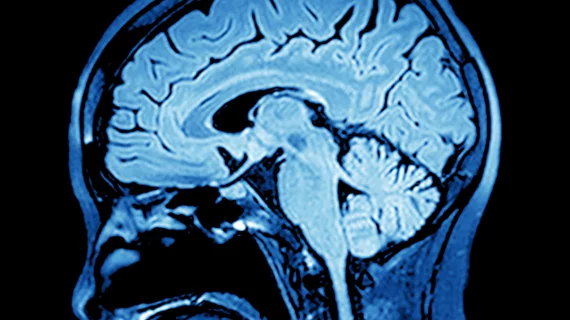AI could predict risk of Alzheimer’s on MRI 5 years before symptoms emerge
A new artificial intelligence (AI) algorithm developed by Canadian researchers can detect evidence of cognitive decline in brain MRI scans, genetics and clinical data, and may predict whether findings will lead to Alzheimer’s disease five years before symptoms appear.
“At the moment, there are limited ways to treat Alzheimer’s and the best evidence we have is for prevention,” Mallar Chakravarty, PhD, a computational neuroscientist at the Douglas Mental Health University Institute in Canada, said in a prepared statement. “Our AI methodology could have significant implications as a ‘doctor’s assistant’ that would help stream people onto the right pathway for treatment.”
For their study, Chakravarty and colleagues from the University of Toronto and the Center for Addiction and Mental Health in Toronto trained their AI algorithm with data from the Alzheimer’s Disease Neuroimaging Initiative through the National Institutes of Health’s National Institute on Aging.
The data came from more than 800 geriatric patients ranging from normal and healthy to those experiencing mild cognitive impairment and Alzheimer's disease. The researchers found their algorithm accurately predicted cognitive decline leading to Alzheimer's disease in cohorts by analyzing brain MRI scans, genetics and clinical data.
Study results were then replicated for accuracy on an independently collected sample from the Australian Imaging and Biomarkers Lifestyle Study of Ageing, according to the researchers.
“We are currently working on testing the accuracy of predictions using new data,” Chakravarty said. “It will help us to refine predictions and determine if we can predict even farther into the future.”
The research was published online in the September issue of PLOS Computational Biology.

